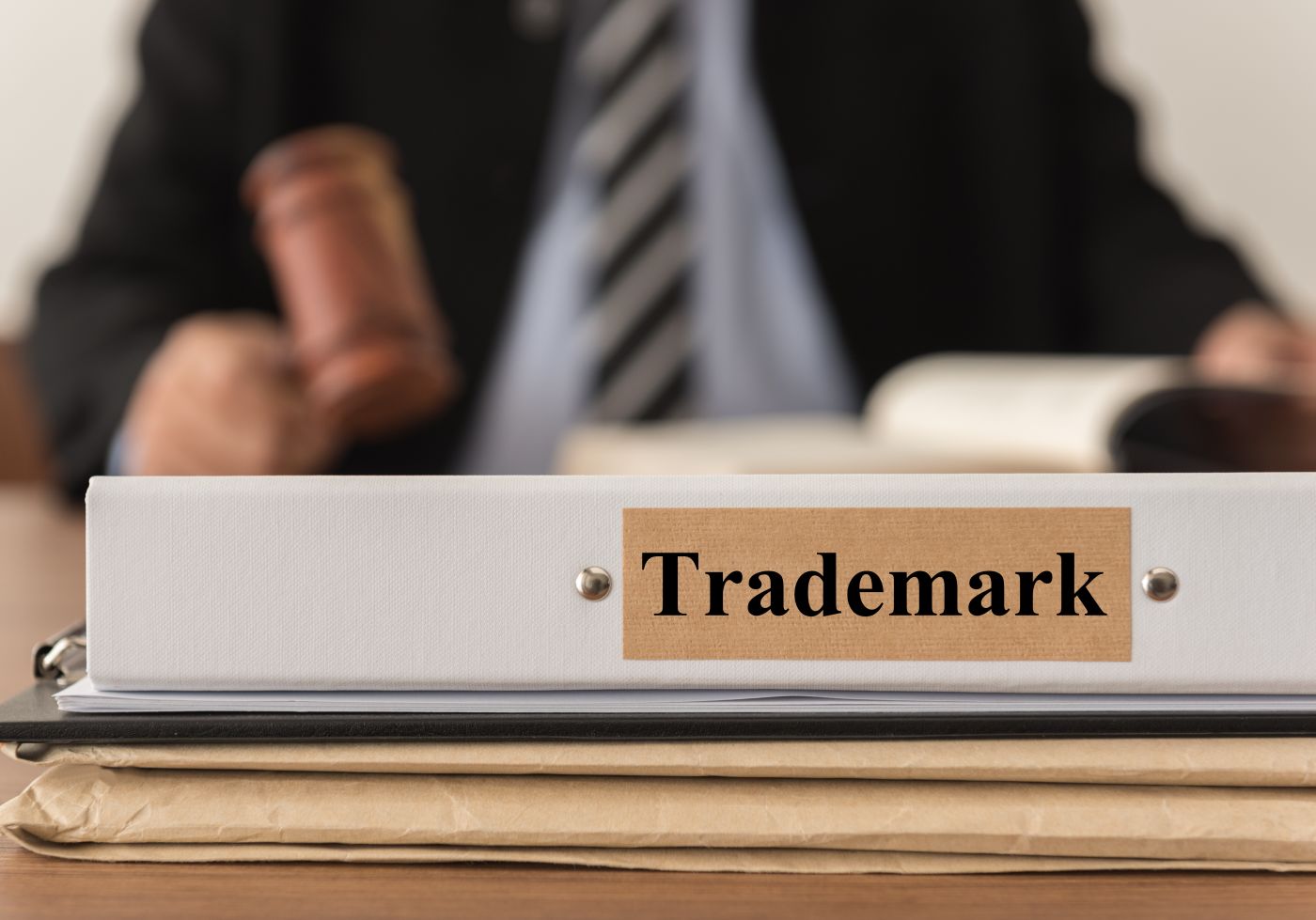
Protecting a brand is a key part of building a successful business. Trademarks help distinguish a company’s goods or services from competitors. By registering a trademark, businesses gain legal rights that help prevent unauthorized use by others.
Keough Law, PLLC is here to help you through the sometimes confusing aspects of trademark law. In this article, we’ll cover everything that you need to know about registering and protecting your brand in Florida.
What Are Trademarks?
A trademark is a word, phrase, symbol, or design that identifies and distinguishes the source of goods or services. It provides legal protection against infringement and helps businesses maintain brand recognition. Unlike copyrights or patents, trademarks specifically protect brand identifiers rather than creative works or inventions.
Federal trademark registration with the United States Patent and Trademark Office (USPTO) provides nationwide rights and stronger enforcement options. While common law rights exist without registration, they offer limited protection and are generally restricted to the geographic area where the mark is used.
Benefits of Registering a Trademark
Registering a trademark offers several advantages that help businesses protect their brand identity. These benefits include:
Exclusive rights to use the mark nationwide
Public notice of ownership, reducing the risk of disputes
Legal standing to file infringement lawsuits
Ability to record the trademark with U.S. Customs to block counterfeit imports
Stronger position when negotiating licensing or assignment agreements
Taking these steps strengthens a brand’s position and makes it easier to enforce trademark rights.
Steps to Register a Trademark
The process of registering a trademark involves several steps. To apply for federal registration, we must:
Conduct a trademark search to identify potential conflicts
File an application with the USPTO
Respond to any office actions or objections
Monitor the application status until approval
Maintain the registration by filing periodic renewals
Conducting a trademark search before applying helps avoid conflicts with existing marks. The USPTO examines each application to determine if the mark meets legal requirements. If approved, the registration remains valid as long as the required renewals are submitted.
Protecting a Trademark From Infringement
Trademark owners must take steps to protect their rights. If another party uses a similar mark without permission, legal action may be necessary. Common enforcement measures include:
Sending cease-and-desist letters
Filing complaints with online marketplaces
Pursuing litigation when necessary
Monitoring trademark use in the market helps identify potential infringements early. Online tools and legal resources can assist in tracking unauthorized use.
Trademark Law and Business Branding
Trademark law plays a critical role in business branding. A strong trademark increases brand recognition and builds consumer trust. Businesses should integrate trademark protection into their branding strategy to avoid legal disputes.
When choosing a trademark, selecting a distinctive and unique name or logo improves the likelihood of approval. Generic or descriptive terms are harder to register and enforce. Businesses should also consider how their mark will be used across different platforms and marketing materials.
Trademark Considerations for Small Businesses
Small businesses may face challenges when protecting their brand. Limited resources can make enforcement difficult, but taking proactive measures helps. Small business owners should:
Register their trademarks early to secure rights
Use clear branding guidelines to maintain consistency
Monitor competitors and online platforms for infringement
Take action against unauthorized use promptly
Protecting a trademark early reduces the risk of costly disputes later.
Trademark Protection for Online Businesses
Online businesses must be especially vigilant about protecting trademarks. Digital marketplaces, social media platforms, and e-commerce websites make it easier for others to misuse a brand. To safeguard trademarks online, businesses can:
Register trademarks with online platforms that offer brand protection programs
Use digital monitoring tools to detect unauthorized use
File complaints with search engines or domain registrars if a domain infringes on a trademark
Taking these steps helps reduce the risk of brand dilution and infringement in digital spaces.
Trademark Law in Licensing Agreements
Many businesses enter into licensing agreements that allow third parties to use their trademarks. A well-drafted licensing agreement defines the terms of use, quality control measures, and payment obligations. Without clear terms, trademark owners may lose control over how their brand is represented.
Trademark licensing can create additional revenue opportunities while expanding brand recognition. However, businesses must actively manage licensing relationships to prevent misuse or dilution of their marks.
Trademark Law and Business Expansion
As businesses grow, trademarks play a critical role in expansion efforts. Whether entering new markets, launching new product lines, or franchising, protecting trademarks helps maintain brand integrity. Expanding into international markets often requires registering trademarks in multiple jurisdictions.
Conducting a trademark clearance search before expanding helps identify potential conflicts with existing marks in different regions. Many countries have different trademark laws, making it essential to research local requirements before launching a brand in a new market.
Addressing Trademark Disputes
Trademark disputes can arise when businesses use similar marks that cause confusion among consumers. Resolving disputes early prevents prolonged legal battles and financial losses. Common resolution methods include:
Negotiating settlements between parties
Mediation or arbitration to reach a fair agreement
Pursuing litigation if no resolution is possible
Clear trademark policies and proactive monitoring help reduce the risk of disputes. Taking action quickly when conflicts arise protects brand integrity.
Trademark Maintenance and Renewals
Once a trademark is registered, maintaining its validity requires ongoing attention. The USPTO requires periodic filings to keep a trademark active. Key maintenance steps include:
Filing a Declaration of Use between the fifth and sixth year
Renewing the registration every 10 years
Continuing to use the trademark in commerce
Failing to meet renewal deadlines can result in the cancellation of a registration. Regular monitoring and compliance with filing requirements keep trademark rights intact.
Trademark Protection and Social Media
Social media plays a significant role in brand visibility. Businesses should take steps to protect their trademarks on social media platforms. Trademark infringement on social media can include unauthorized use of logos, brand names, or misleading accounts posing as legitimate businesses.
Many social media platforms offer tools to report trademark violations. Businesses should monitor these platforms regularly and file complaints when necessary. Including trademark notices in profiles and content also reinforces brand ownership.
Trademark Litigation and Legal Remedies
When informal enforcement methods fail, litigation may be necessary. A trademark infringement lawsuit can seek damages, injunctive relief, or both. Courts analyze factors such as consumer confusion, similarity of marks, and intent to determine the outcome of a case.
Legal remedies for trademark infringement may include:
Monetary damages for lost profits or harm to reputation
Court orders to stop unauthorized use
Seizure of counterfeit or infringing goods
Businesses should weigh the costs and benefits of litigation before proceeding. In some cases, negotiated settlements provide a more efficient resolution.
The Importance of Trademark Monitoring Services
Trademark monitoring services help businesses track unauthorized use of their marks. These services scan global trademark databases, online marketplaces, and social media platforms for potential infringements. Identifying issues early allows businesses to take action before significant harm occurs.
Businesses investing in trademark protection should consider monitoring as part of their enforcement strategy. By staying proactive, companies can safeguard their brand and prevent unauthorized use.
Contact Keough Law, PLLC for More Information
Trademarks serve as valuable business assets, protecting brand identity and consumer trust. Here at Keough Law, PLLC, we serve Orlando, Florida, as well as Orange County, Osceola County, Hillsboro County, and Pinellas County. If you have any questions regarding trademark law and would like to work with an experienced attorney, call us today.



